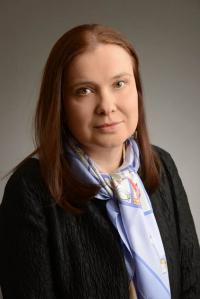
Making Sure Clinical Trials for Lupus Reflect the Population
Expert Perspectives
Dr. Anca Askanase, Professor of Medicine and Director and founder of the Columbia Lupus Center, has long been involved in education programs for patients with SLE at New York University, Columbia University and various lupus advocacy groups. Through a research project funded by the Office of Minority Health in the U.S. Department of Health and Human Services, she and her colleagues implemented an educational engagement program in New York City geared towards under- and un-insured city residents as well as patients from minority groups. This project sough to refine and test the clinical trial educational (CTE) sessions (adapted from the Lupus Research Alliance Patient Advocates for Lupus Studies curriculum) by adding patient-centered decision aids to influence behavior and to make educational content on lupus clinical trials available to all participants.
Out of 115 patients currently enrolled in the study, 95% reported that they were highly satisfied or satisfied with the CTE sessions, 53% said they learned new information about lupus, 71% said they learned new information about lupus clinical trials, and 69% of patients indicated that, following their educational sessions, they were more likely to participate in a clinical trial. Informal feedback from session facilitators (providers, research coordinators, and patient advocates) demonstrated the importance of tailoring sessions to include discussions about the patient’s current health concerns, providing personalized information, and helping patients navigate care. Other important recommendations received during both the CTE and GHL sessions (nutrition, weight management, and vaccine education) included the advice to screen for social determinants of health (SDOH) and provide resources to address these. Patients also expressed the need for more in-depth general lupus education (in addition to general health and clinical trial education) and the option to continue the discussions at a later time.
As this work demonstrates, it is essential to be thoughtful and flexible in refining patient educations programs, particularly by listening to patients themselves and incorporating their feedback into program design and content. Dr. Askanase and her colleagues are at the forefront of this important area of research and continue to make clinical research and care better for patients across the country, one person at a time
